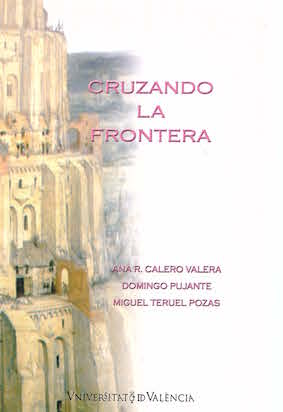La búsqueda de la propia identidad en L’exil est mon pays de Isabelle Alonso
DOI:
https://doi.org/10.7203/qf-elit.v12i0.5027Paraules clau:
exili, identitat, infantesa, estranger, llengua Resum
Resum
En L’exil est mon pays, Isabelle Alonso adopta el to infantil per narrar en primera persona els records d'una nena nascuda a França de pares espanyols. Tot gira entorn de la cerca de la identitat d'Angoixes, que indaga sobre la diferència per la qual se sent considerada estrangera. El seu món interior, representat per la casa en la qual se sent protegida, s'enfronta al dur món exterior del carrer i l'escola, i la llengua serà el vehicle que posi en relleu aquesta diferència. La història d'Angoixes, com la d'Isabelle Alonso, és la de tots aquells que se senten desplaçats en el lloc en el qual viuen, i un cant a tots els que tenen i tindran l'íntim desig de ser per fi com els altres, sense oblidar mai els seus orígens.
 Descàrregues
Descàrregues
Descàrregues
Publicades
Com citar
-
Resum304
-
PDF (Español)157
Número
Secció
Llicència
 Este obra está bajo una licencia de Creative Commons Reconocimiento-NoComercial-SinObraDerivada 4.0 Internacional.
Este obra está bajo una licencia de Creative Commons Reconocimiento-NoComercial-SinObraDerivada 4.0 Internacional.
Tots els documents inclosos a OJS són d'accés lliure i propietat dels seus autors i/o institucions editores, i per tant, qualsevol acte de reproducció, comercialització, comunicació pública o transformació total o parcial necessita el consentiment exprés i escrit d'aquests.
________
Authors who publish with this journal agree to the following terms:
- Authors retain copyright and grant the journal right of first publication with the work simultaneously licensed under a Creative Commons Attribution License that allows others to share the work with an acknowledgement of the work's authorship and initial publication in this journal.
- Authors are able to enter into separate, additional contractual arrangements for the non-exclusive distribution of the journal's published version of the work (e.g., post it to an institutional repository or publish it in a book), with an acknowledgement of its initial publication in this journal.
- Authors are permitted and encouraged to post their work online (e.g., in institutional repositories or on their website) prior to and during the submission process, as it can lead to productive exchanges, as well as earlier and greater citation of published work (See The Effect of Open Access).




